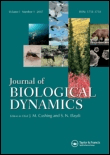
Journal of Biological Dynamics
metrics 2024
Exploring the intricate dynamics of life on Earth.
Introduction
The Journal of Biological Dynamics is a pivotal open access publication, established in 2007 and published by Taylor & Francis Ltd, that caters to a broad field of inquiry within Ecology, Evolution, Behavior, and Systematics. With an ISSN of 1751-3758 and an E-ISSN of 1751-3766, this journal has garnered a respectable reputation, securing a Q2 ranking in both its primary categories according to the 2023 metrics. The journal aims to disseminate high-quality research that stimulates dialogue among ecological scientists, practitioners, and students while providing insightful analysis on biological dynamics. As part of its commitment to accessibility, it has been an open access publication since 2012, allowing free access to its rich repository of knowledge. Hailing from the United Kingdom, this journal not only provides a platform for original research but also contributes significantly to advancing ecological understanding through its innovative approach.
Metrics 2024
 0.60
0.60 1.80
1.80 2.20
2.20 43
43Metrics History
Rank 2024
Scopus
IF (Web Of Science)
JCI (Web Of Science)
Quartile History
Similar Journals
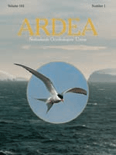
ARDEA
Fostering collaboration in animal science and ecology.ARDEA, published by the Nederlandse Ornithologische Unie, is a prominent journal in the fields of Animal Science, Zoology, and Ecology. With its rich history spanning from 1981 to the present, ARDEA serves as a vital platform for researchers and professionals dedicated to avian studies and the ecological sciences. This quarterly journal is recognized in the Q3 category for both Animal Science and Ecology, as per the latest rankings, and maintains an impressive global standing within its subject areas. Although it operates without an open access model, the journal provides significant insights and contributions to the understanding of bird biology, conservation, and evolution. Researchers and students seeking to advance their knowledge in ornithology and related fields will find ARDEA to be an indispensable resource, promoting high-quality research and fostering academic collaboration.
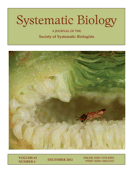
Systematic Biology
Unraveling the complexities of biodiversity through rigorous research.Systematic Biology is a premier journal published by Oxford University Press, dedicated to advancing the field of systematic biology through rigorous research and comprehensive reviews. Established in 1952, this esteemed journal has become a cornerstone of scholarship in Ecology, Evolution, Behavior and Systematics and Genetics, consistently ranking in the Q1 category as of 2023. With an impressive Scopus ranking—19th in Ecology and Evolution and 23rd in Genetics—Systematic Biology offers a platform for the dissemination of groundbreaking research, novel methodologies, and critical discussions that shape our understanding of biological diversity and evolution. While the journal does not currently offer open access options, it maintains a strong commitment to quality and integrity in publishing, ensuring that every article contributes meaningfully to the scientific community. Researchers, professionals, and students alike will find valuable insights and a wealth of knowledge within its pages, supporting their work and fostering a deeper appreciation for the intricate web of life.

Proceedings of the Institute of Mathematics and Mechanics
Exploring New Dimensions in Mathematics and MechanicsProceedings of the Institute of Mathematics and Mechanics is a pivotal journal in the field of mathematics, dedicated to the advancement and dissemination of cutting-edge research in various sub-disciplines. Published by INST MATHEMATICS & MECHANICS, NATL ACAD SCIENCES AZERBAIJAN, this journal plays a significant role in bridging local and international research communities. With an ISSN of 2409-4986 and E-ISSN of 2409-4994, it has gained recognition, attaining a Q3 ranking in the Miscellaneous Mathematics category and placing in the 67th percentile on Scopus. Run from 2017 to 2024, the journal serves as an accessible platform for scholars and practitioners, inviting contributions that advance theoretical knowledge and practical applications in mathematics. With an emphasis on quality and innovation, the Proceedings of the Institute of Mathematics and Mechanics stands out as a vital resource for those looking to stay at the forefront of mathematical research and its multifaceted applications in various fields.

Epidemiology and Health
Empowering public health insights for a healthier tomorrow.Welcome to Epidemiology and Health, a premier open-access journal dedicated to advancing knowledge in the fields of epidemiology and public health. Published by the Korean Society of Epidemiology since 1979, this journal serves as a vital platform for researchers, professionals, and students alike, promoting innovative research and robust discussion surrounding public health issues. Based in South Korea, it boasts a commendable Q2 ranking in the categories of Epidemiology, Public Health, and Environmental and Occupational Health, reflecting its significant contribution to the scientific community. With its current impact factor ranking it favorably among peers—#124 out of 665 in Public Health and #40 out of 148 in Epidemiology—Epidemiology and Health continues to uphold its mission of disseminating high-quality, peer-reviewed research. The journal's commitment to open access ensures that vital epidemiological insights reach a broad audience, supporting the collective goal of improving global health outcomes. Engage with pioneering studies and emerging trends within these critical fields, as we work towards a healthier future.

ACTA BIOTHEORETICA
Elevating Research Across Diverse Academic LandscapesACTA BIOTHEORETICA is a distinguished academic journal published by Springer, offering a vital platform for the dissemination of research within various interdisciplinary fields including Agricultural and Biological Sciences, Applied Mathematics, Biochemistry, Genetics and Molecular Biology, Environmental Science, and Philosophy. The journal, with its extensive history since its inception in 1935, holds a significant impact factor within its respective categories, ranking Q2 in Agricultural and Biological Sciences and Q1 in Philosophy as of 2023. Its archives, spanning from historical publications to contemporary studies, serve as a rich repository for scholars, professionals, and students dedicated to advancing knowledge in these areas. ACTA BIOTHEORETICA invites contributions that push the boundaries of theoretical exploration and practical application, with the aim of fostering an understanding that bridges science and philosophy. Although not open access, the journal maintains wide accessibility through its integrated digital platforms, enhancing the reach and impact of published work worldwide. Its central office located in Dordrecht, Netherlands further accentuates its international appeal and significance.

Theoretical Ecology
Unraveling complexities in ecological modeling and theory.Theoretical Ecology, published by SPRINGER HEIDELBERG, is a premier journal in the field of ecological modeling and theory, exemplifying the intersection of rigorous quantitative analysis and ecological understanding. With its ISSN 1874-1738 and E-ISSN 1874-1746, this journal has been a valuable resource for researchers since its inception in 2008, with a commitment to publish cutting-edge research until 2024. The journal's 2023 category quartiles demonstrate its impact, ranking Q3 in Ecological Modeling and Q2 in Ecology, reflecting its significance within the academic community. Furthermore, its Scopus rankings position it among the top tier of environmental science journals, ranking #181/461 in Ecology and #21/41 in Ecological Modeling. While the journal does not offer open access, it is an essential publication for those looking to deepen their understanding of theoretical frameworks that drive ecological research and practice. By providing a platform for innovative theories and models, Theoretical Ecology plays a crucial role in shaping future ecological studies and informing policy decisions in environmental management.
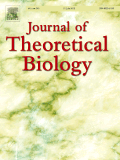
JOURNAL OF THEORETICAL BIOLOGY
Innovating Insights into Complex Biological SystemsJOURNAL OF THEORETICAL BIOLOGY, published by Academic Press Ltd - Elsevier Science Ltd, stands as a pivotal source of scholarly research in the domains of theoretical and applied biological sciences. Since its inception in 1961, this esteemed journal has contributed significantly to the advancement of knowledge across various fields, including agricultural sciences, applied mathematics, biochemistry, genetics, immunology, and medical research. With a commendable Q2 ranking in multiple categories for 2023, it showcases robust impact throughout the academic community, reflected in its high Scopus rankings, which place it in the top 25% of journals in several categories. The journal's commitment to fostering interdisciplinary research supports its objective of bridging theoretical frameworks with practical applications, making it an essential resource for researchers, professionals, and students alike. With its wide-ranging topics and a keen focus on innovation, the JOURNAL OF THEORETICAL BIOLOGY is indispensable for those seeking to explore the complexities of biological systems and their mathematical modeling.

ENVIRONMENTAL BIOLOGY OF FISHES
Bridging ecological insights and fish conservation strategies.ENVIRONMENTAL BIOLOGY OF FISHES, published by SPRINGER, is a premier journal in the fields of Aquatic Science and Ecology, Evolution, Behavior and Systematics. With a rich history spanning from 1976 to 2024, this esteemed journal provides a platform for groundbreaking research that addresses critical issues such as fish ecology, species behavior, and environmental influences on aquatic life. Recognized for its significant contributions, it holds a Q2 ranking in both the Aquatic Science and Ecology categories, reflecting its influence and relevancy in the academic community. The journal's focus on innovative ecological studies makes it an essential resource for researchers, professionals, and students dedicated to advancing our understanding of fish biology and the broader ecological systems of which they are a part. Although not an open-access publication, the insights and findings presented in its articles are invaluable for those engaged in the preservation and sustainable management of aquatic environments.
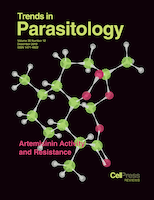
TRENDS IN PARASITOLOGY
Leading the charge in parasitology advancements.TRENDS IN PARASITOLOGY is a premier academic journal published by CELL PRESS, focusing on the dynamic field of parasitology and infectious diseases. With an ISSN of 1471-4922, this esteemed journal is recognized for its high impact within the research community, boasting a Q1 ranking in both the Infectious Diseases and Parasitology categories as of 2023. This places it among the top-tier journals in the field, as evidenced by its remarkable Scopus rankings, where it ranks #3 out of 79 in Parasitology and #29 out of 344 in Infectious Diseases. Spanning over two decades of scholarly contributions from 2001 to 2024, TRENDS IN PARASITOLOGY emphasizes the latest advancements, challenges, and innovative methodologies in parasitology, making it an invaluable resource for researchers, healthcare professionals, and students alike. With an increasing focus on open access initiatives, this journal not only promotes widespread dissemination of knowledge but also encourages collaboration across the global scientific community. Whether you are investigating novel interventions, exploring parasite evolution, or understanding host-pathogen interactions, TRENDS IN PARASITOLOGY remains at the forefront of research, driving forward the understanding of parasitic diseases.

PARASITOLOGY
Leading the discourse in parasitic biology since 1908.PARASITOLOGY, published by Cambridge University Press, is a prestigious journal that has been at the forefront of research in the field of parasitology since its inception in 1908. This esteemed publication carries the ISSN 0031-1820 and E-ISSN 1469-8161, and its rigorous peer-reviewed articles provide insights into both fundamental and applied aspects of parasitic biology, infectious diseases, and host-parasite interactions. With a commendable impact factor, PARASITOLOGY ranks in the top quartile (Q1) for Animal Science and Zoology and holds Q2 rankings in both Infectious Diseases and Parasitology categories, indicating its significant influence and contribution to these disciplines. The journal's diverse scope allows for a broad range of research articles, reviews, and case studies, making it an essential resource for researchers, professionals, and students seeking to stay updated on the latest developments in the field. Based in the United Kingdom, PARASITOLOGY offers valuable access to critical research in an era where understanding parasitic diseases is more vital than ever, and continues to shape the future of this important scientific field.